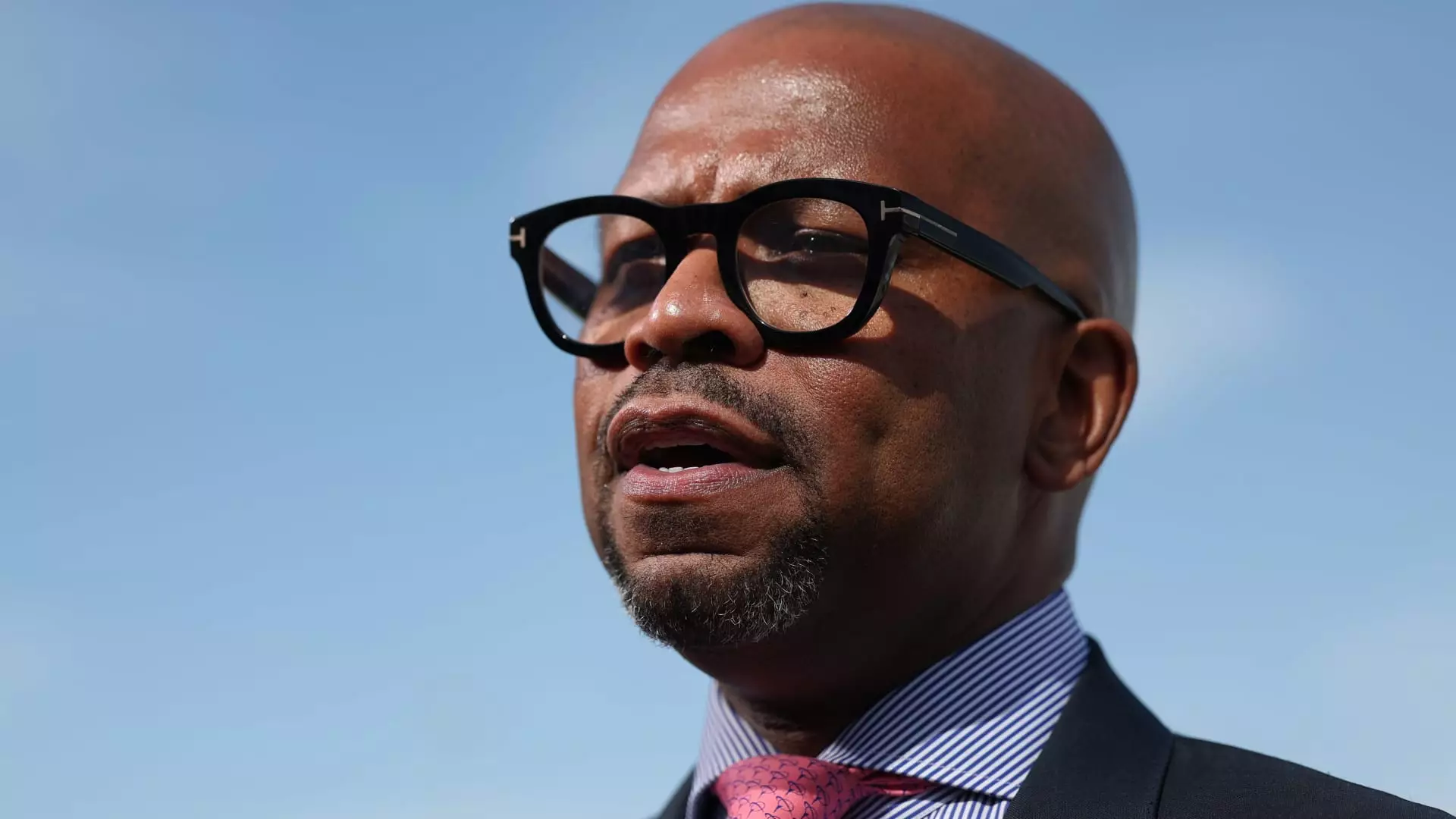Boeing, a name synonymous with aviation and aerospace excellence, is currently grappling with critical leadership changes. CEO Kelly Ortberg has announced the immediate departure of Ted Colbert, head of Boeing’s defense unit. This decision signifies Ortberg’s first substantial move since he stepped into his role in early August, indicating a pressing need for the company to reassess its strategic direction. Such leadership transitions often come at pivotal moments, especially when facing operational difficulties, and Boeing is no exception.
Colbert’s departure occurs against a backdrop of significant challenges for Boeing’s defense sector. With nearly 40% of Boeing’s revenue originating from the defense, space, and security unit in just the first half of this year, the stakes are extraordinarily high. While Ortberg acknowledges Colbert’s 15 years of dedication to the company, it is clear that restoring trust and improving operational standards have become immediate priorities. In a memo to staff, he emphasized the importance of enhancing performance to meet the ever-evolving expectations of customers engaged in critical missions globally.
The urgency of Ortberg’s call for improvement cannot be overstated. Boeing’s defense unit has faced considerable pressure due to production delays and cost overruns. Such issues have raised alarms not just at executive levels but also among stakeholders who rely on Boeing for their operational capabilities. Among the most notable setbacks has been the production of new 747 aircraft designated for the Presidential Airlift Wing, formerly known as Air Force One. Delays in such crucial projects may not only impact revenue but also public perception of Boeing’s reliability.
Moreover, the company’s ventures in space have also been problematic. The Boeing Starliner’s recent return to Earth without carrying NASA astronauts exemplifies the complications faced within the space sector. NASA has opted to use SpaceX’s Crew-9 vehicle for astronaut recovery, highlighting a potential reputational concern for Boeing at a time when it desperately needs to regain credibility. The spotlight is now on Steve Parker, who steps in as the interim leader of the defense unit. His ability to stabilize operations and turnaround morale will be pivotal in the coming months.
As Boeing embarks on this new chapter, the path to recovery is layered with complexity. Trust can take years to rebuild, and the pressing need for reliable delivery on contracts will require an extensive overhaul of their current practices. Ortberg’s commitment to collective improvement within the company speaks to a broader need for cultural change. Not only must Boeing deliver on operational commitments, but it must also cultivate robust partnerships with its customers to foster long-term loyalty.
Ted Colbert’s departure underscores the seismic shifts within Boeing at a time when the company must navigate troubled waters. With Ortberg at the helm, the focus remains on restoring confidence and enhancing performance. However, the effectiveness of these changes will ultimately depend on the strategic decisions made in the coming months to tackle ongoing challenges and seize new opportunities in the evolving landscape of aerospace and defense. The company stands at a crossroads, where decisive leadership and a commitment to excellence will chart its future course.

